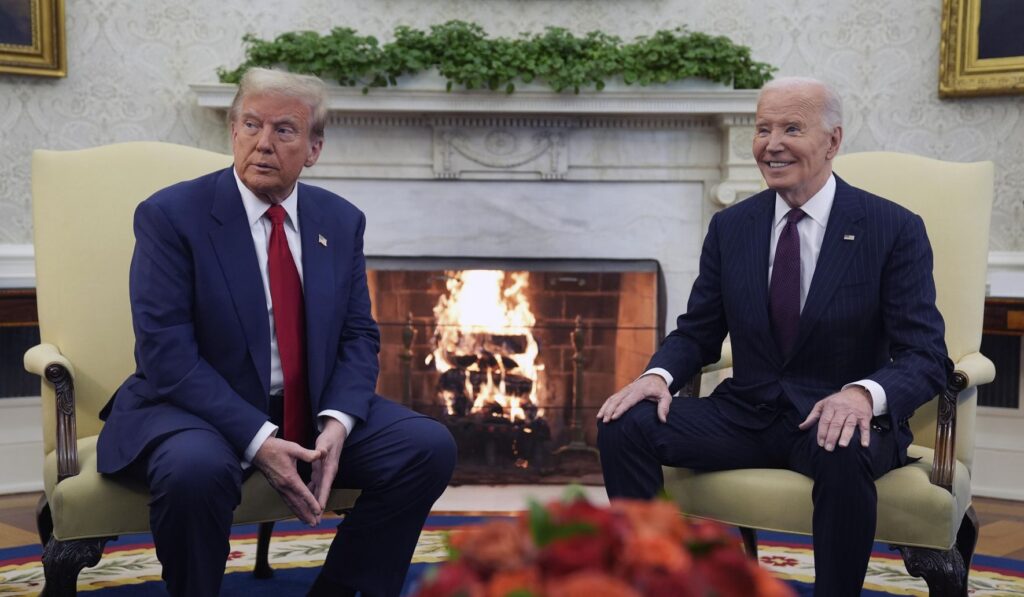Jaw-dropping whistleblower documents made public Wednesday revealed that the Biden Justice Department secretly cast a massive investigatory net over the Republican Party, and much of the surveillance appeared to target lawful political activity. The newly released material raises questions about abuse of power, selective enforcement, and the balance between national security and First Amendment rights. This piece reviews what the documents show, the political implications, and why conservatives are calling for answers.
The whistleblower files outline a wide-ranging operation inside the Justice Department that monitored or collected information on Republicans and Republican-affiliated groups. Sources within the docs point to investigative tools and tactics used far beyond narrow criminal inquiries, suggesting a scope more suited to political intelligence gathering than ordinary law enforcement. For many on the right, that difference matters because it speaks to intent and to whether civil liberties were trampled.
Republican lawmakers reacted quickly and angrily when the documents hit the public record, framing the disclosures as confirmation of long-held suspicions about weaponized federal power. They argue the Justice Department treated political opponents as threats instead of citizens with constitutional protections. That message resonates with voters who worry about fairness in how laws are enforced and who benefits from government secrecy.
Legal experts quoted by conservative outlets point to procedural irregularities and a lack of transparency in how these investigations were opened and carried out. Questions include who authorized the surveillance, what legal standards were applied, and whether court oversight was adequate. Without clear answers, the default assumption for critics is that normal checks and balances failed or were bypassed.
Beyond legalities, the political fallout is immediate and strategic. Republicans are using the documents to demand hearings, subpoena officials, and push for internal reforms at the Justice Department. The goal is not just accountability in this specific case but structural changes that would prevent similar actions in the future. The debate now centers on whether those reforms will be serious or merely performative.
There are also implications for future elections and for the relationship between federal law enforcement and political parties. If a party can be systematically surveilled while in opposition, that sets a dangerous precedent for how dissent is treated in this country. Conservatives see this as part of a broader pattern where institutions are leveraged against political rivals instead of serving the public impartially.
People concerned about civil liberties emphasize that the Constitution protects speech, assembly, and association, especially for groups engaging in political debate. Surveillance that chills participation or targets organizers undermines those freedoms. Republican critics say the whistleblower documents prove those protections were not respected and that affected citizens deserve restitution and stronger safeguards.
There are practical questions about evidence handling and what information was shared across agencies. Critics worry about data retention, access controls, and whether intelligence databases became repositories for politically relevant information. Reform proposals from conservatives include stricter minimization rules, mandatory disclosures in certain cases, and clearer limits on cross-agency sharing when political actors are involved.
Accountability mechanisms are already being discussed in conservative circles, with plans for oversight that range from congressional investigations to legislative changes. Republicans pushing this issue aim to restore trust by making the Justice Department more transparent and by ensuring that investigations meet objective legal standards. Trust can only be rebuilt if the public can see how decisions were made and by whom.
The whistleblower release has energized voters and widened the gap between parties on institutional trust. For Republicans, the facts in these documents confirm that federal power can be turned inward, and that safeguards are now a bipartisan necessity for those who value constitutional liberty. The coming weeks will test whether those demands for accountability translate into real changes inside the Department of Justice and across the federal government.



